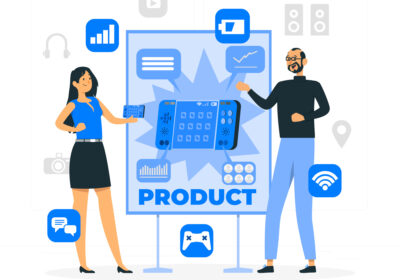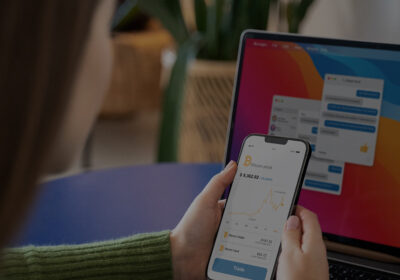The development of mobile apps has now become a part of the business strategy, and through it, companies can interface with their customers, make their brands more popular, and improve operational efficiency. But whether you are a startup developing your first mobile app or a well-established business developing an altogether new application feature, one of the first questions that will crop up is: How long will it take to develop a mobile app?
Variations in the timeline of a mobile app’s development depend on multiple factors, such as the complexity, functionality, and design requirements of the app, in addition to the approach of development. In this blog, we will define the major phases of mobile app development and give an idea of how long each phase would actually take in real life.
Factors Affecting Mobile App Development Timeline
Before moving into details of the time taken in actual app development, one needs to consider what actually makes the difference in terms of time it takes to get a mobile app ready:
- App Type and Complexity: The more functionality and features you require, the more it will take to develop them. Very simple apps like to-do lists or simple calculators will take much less time to develop compared to a complex social network application or a complex e-commerce platform.
- Platform Choice: Development for a single versus cross-platform strategy is an additional consideration in developing the app. Building for a single platform—iOS or Android—is faster than building for both, but cross-platform development provides the benefit of reaching a broader audience.
- UX: The more complex and customized your designs may be, the longer it would take to develop. App success hinges on an intuitive UI and a fluid UX, which requires close attention to detail.
- App Development Team: The experience and size of your development team will play an important part in the speed at which the app can be delivered. A well-coordinated, more experienced team will produce faster results as opposed to a less experienced one.
- App Testing and Quality Assurance: This will involve proper testing and QA so that the app runs with as few bugs or other functionality issues as possible, further contributing to overall development time.
The Mobile App Development Process: Step-by-Step Timeline
Now that we have a general idea of what mobile app development entails, let’s move on to the major stages of the mobile app development process and the average time each one takes:
1. Conceptualization and Planning (1-2 Weeks)
The first phase is the conceptualization of your idea and determining the core features of your app. At this point in the process, the development team will sit down with you to understand the goals and target audience for your app and how your app is supposed to function in total. This is also the time to decide on the platform that your app will run on (iOS, Android, or both) and what technologies you will be using.
- Timeframe: 1-2 weeks
- Key Activities:
- Define features and functionality for your app
- Make wireframes or mockups
- Outlining the app’s scope and objectives
- Choosing the technology (native or hybrid)
2. Designing (3-6 Weeks)
Once the concept of the app is decided upon, now comes the designing. This is where the UI/UX of the app is created. That includes determining the layout and flow of the app, as well as its visuals. The designers do all this so that something sleek, intuitive, and engaging is brought to life, which meets the brand requirement.
- Timeframe: 3-6 weeks
- Critical Activities:
- User Interface (UI) / User Experience (UX) for mobile screens and app flows
- Designing prototypes or clickable mockups
- Iterate over received feedback and change the design
3. Development Phase (8-16 Weeks)
While the design is completed, development starts. This refers to developers beginning to write code for the front-end part of the app—the client portion—so that the users will see and interact with, and the back-end, or the server-side logic, databases, etc. The choice between native app and cross-platform will determine the development phase.
- Native App Development: You can go for native app development, and for that, the development cycles will be different for both platforms. In other words, you have to make two separate apps for iOS and Android.
- Cross-Platform Development: For a cross-platform app, you can use the same codebase for both platforms, which accelerates the development process.
- Timeframe: 8-16 weeks
- Key Activities:
- Front-end development (UI components, app layout)
- Back-end development (APIs, database structure, server-side logic)
- Integrate third-party services (payment gateways, social logins, etc.)
4. Testing and Quality Assurance (3-6 Weeks)
There should be a testing phase where the app is strictly put to testing to remove bugs, performance-related issues, and usability problems. The testing phase encompasses all the following:
- Functional testing: It ensures the application works as intended
- Usability testing: That it is easy to use
- Compatibility testing: Checking whether it works appropriately on different devices and screen sizes
- Performance testing: Whether it functions properly with many users and heavy data processing
Quality assurance is constantly applied to the development process; however, rigorous testing typically takes place towards the end of the development cycle.
- Duration: 3 to 6 weeks
- Key Activities:
- Bug fixing
- Performance optimization
- Final app features
- Compatibility testing on multiple devices and OS versions
5. Deployment and Launch (1-2 Weeks)
Once it has been tested and bugs addressed, it then goes into deployment. Deployment is the process of submitting the application to the platforms for review, such as the Google Play Store or Apple App Store. An app is likely to take a few days to weeks, at most, before being approved by a platform based on the platform and the complexity of the app.
Once approved, the application is live and ready for upload and use.
- Duration: 1-2 weeks
- Activities:
- Submission of the app to either the Google Play or Apple App Store
- Marketing preparation and launch
- Tracking bugs or issues from the first app launch
6. Post-launch Maintenance and Updates (Ongoing)
Development does not stop after a release is made. This is due to the ongoing need for maintenance, updates, and bug fixing to ensure that the application runs smoothly while improving performance based on some of the user feedback.
This includes adding new features or optimizing for newer devices or operating systems.
- Time Horizon: Ongoing
- Key Activities:
- Routine bug fixes and improvements in terms of performance.
- New feature adding according to the user’s feedback.
- Keeping the app current with the latest OS versions
General Timeline: How Long Does It Take to Make a Mobile App?
From the above steps, the total time for the development of a mobile application takes roughly between 3 months and 9 months depending on the type of most applications. The timeline depends mainly on what the level of complexity of the app and the number of features you might want. A simple app, based on its basic features, would take approximately 3 months. Feature-rich apps involve the use of advanced high-end technologies, such as social networking, e-commerce platforms, or advanced backend integrations in an app. Such applications may take 6 months or more.
- Simple Apps: 3-4 months
- Medium Complexity Apps: 4-6 months
- Complex Apps: 6-9 months+
Conclusion
The mobile app is developed carefully, with talented development and rigorous testing to make sure that your app meets the expectations of the end-user and runs smoothly and glitch-free. While the exact time to develop an app can vary greatly, knowing some of the key stages involved in the development process and some factors that can make a difference will help set realistic expectations and thus keep a project on track.
Verbat boasts rich experience in developing mobile applications, from a small one to large complex solutions. If your app idea is ready to be born, you are welcome to contact our team for any development needs!





